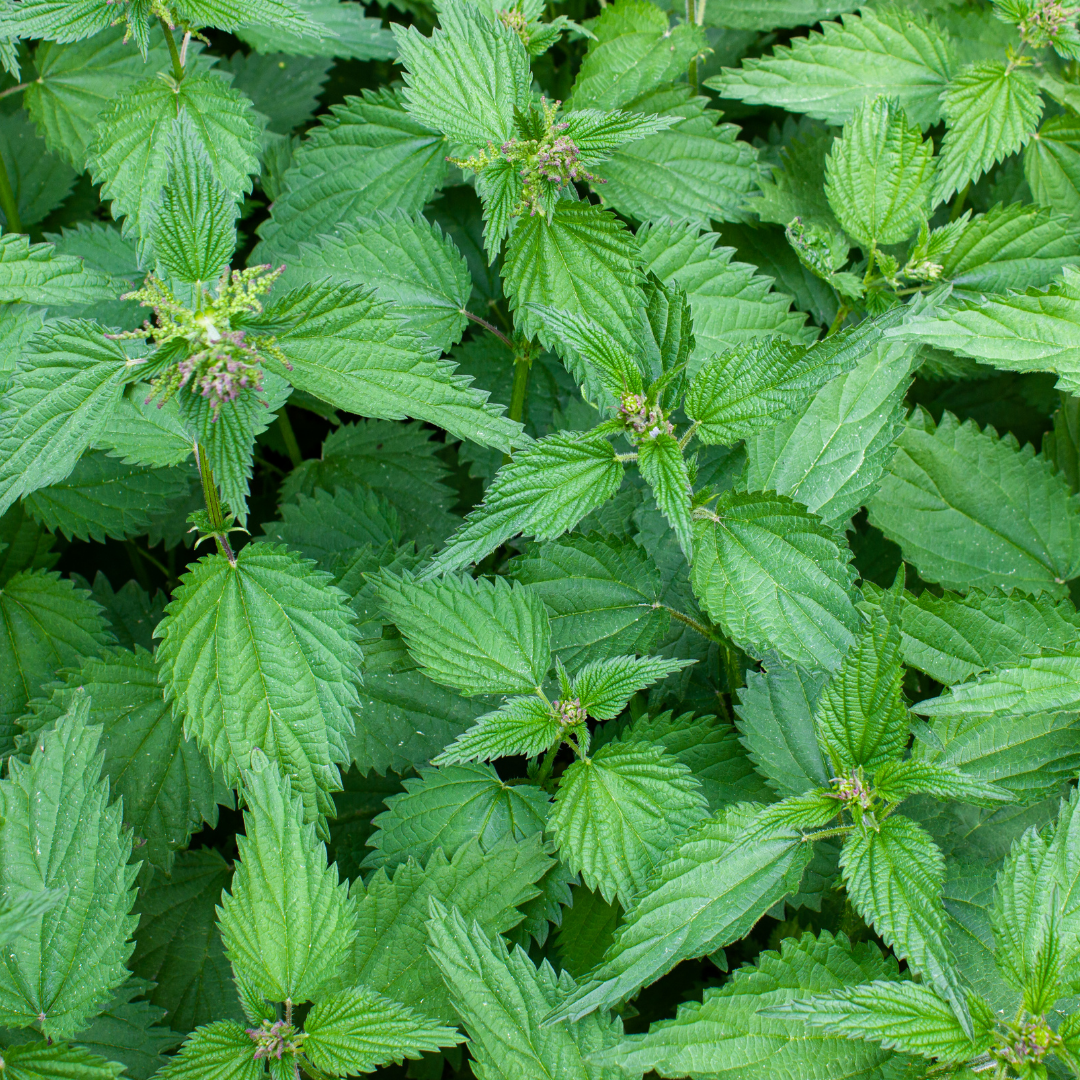
Nettle Leaf
Scientific Name: Urtica dioica
Common Name: Nettle Leaf, Stinging Nettle
Health Benefits:
Supports Joint Health:
- Contains anti-inflammatory compounds that help reduce symptoms of arthritis and other inflammatory joint conditions.
- May alleviate pain when consumed as a tea or applied topically.
Promotes Detoxification:
- Acts as a natural diuretic, promoting the elimination of toxins and excess water through urine.
- Supports liver and kidney health by aiding in waste removal.
Rich in Nutrients:
- Provides essential vitamins and minerals, making it a nourishing addition to a diet for overall wellness.
Allergy Relief:
- May help reduce the symptoms of seasonal allergies (e.g., hay fever) by acting as a natural antihistamine.
Supports Energy and Blood Health:
- High iron content supports the production of red blood cells, making it beneficial for combating fatigue and anemia.
Vitamins and Minerals:
- Vitamin A: Supports vision, skin health, and immunity.
- Vitamin C: Boosts immune function and aids in collagen production.
- Iron: Essential for oxygen transport and energy production.
- Calcium: Promotes bone strength and muscle function.
- Magnesium: Aids in muscle relaxation and energy metabolism.
- Potassium: Supports heart health and fluid balance.
Active Compounds:
- Flavonoids: Provide antioxidant and anti-inflammatory effects.
- Silica: Strengthens bones, hair, and nails.
- Chlorophyll: Aids in detoxification and promotes wound healing.
Safety Information:
Stinging Hairs:
- Fresh nettle leaves have tiny hairs that can irritate the skin, causing a stinging sensation. Cooking or drying the leaves neutralizes this effect.
Drug Interactions:
- May interact with diuretics, blood pressure medications, or blood thinners. Consult a healthcare provider if taking these medications.
Usage Guidelines:
- Safe when consumed as tea, in culinary preparations, or as a supplement.
- Avoid excessive consumption, as high doses may upset the stomach or affect potassium levels.
Forms of Nettle Leaf:
- Dried Leaves: Used for teas and infusions.
- Powdered Nettle: Common in capsules or smoothies.
- Fresh Leaves: Used in soups, stews, or sautéed as a green vegetable (after cooking to remove stinging properties).
Fun Fact:
Historically, nettle fiber was used to make textiles and ropes, similar to linen, due to its durability and strength.
Note:
This information is for educational purposes only and is not intended to replace medical advice. Always consult with a healthcare professional before using herbal products, especially if you are pregnant, nursing, or taking any medications.



